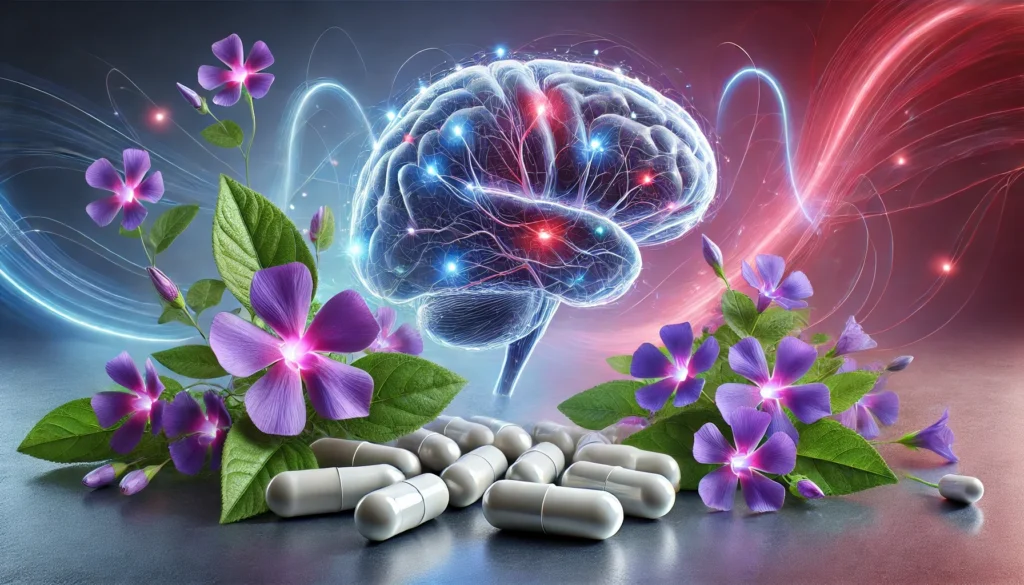Rock Rose, scientifically known as Cistus ladanifer, is a flowering plant belonging to the Cistaceae family. Native to the Mediterranean region, it has garnered attention for its potential health benefits, particularly as a nootropic supplement. Rock Rose has traditionally been used for its medicinal properties, including its astringent and anti-inflammatory effects. Recent studies suggest that it may also enhance cognitive function, making it a subject of interest among researchers and health enthusiasts. This article delves into the chemistry, physiological mechanisms, potential nootropic benefits, recommended dosages, side effects, interactions with other supplements and medications, and safety considerations for Rock Rose supplementation.
You May Also Like:
Salep: Benefits, Dosage, Side Effects, Drug Interactions, and Other Important Information
Sources of Rock Rose
Rock Rose can be found in various forms, including dried leaves, powders, and liquid extracts. The primary source of its beneficial compounds is the resin obtained from the plant, which contains various bioactive constituents, including polyphenols, flavonoids, and essential oils. The most notable compounds are:
- Cistusin: A polyphenolic compound with antioxidant properties.
- Cistus Ladaniferus Extract: Rich in flavonoids and other phytochemicals known for their anti-inflammatory and antimicrobial effects.
- Essential Oils, such as camphor and borneol, contribute to its aroma and therapeutic properties.
These compounds are responsible for the various pharmacological effects attributed to Rock Rose, making it a popular choice for both traditional medicine and modern supplement formulations.
Chemistry of Rock Rose
The phytochemical profile of Rock Rose is diverse, with several key components contributing to its biological activity. Polyphenolic compounds, particularly flavonoids, are of great interest due to their antioxidant, anti-inflammatory, and neuroprotective properties.
- Polyphenols: These compounds are known for their ability to scavenge free radicals and reduce oxidative stress, which is crucial for maintaining cognitive health. Research has shown that polyphenols can enhance cerebral blood flow and promote neuronal survival, thereby supporting cognitive function.
- Flavonoids: A subgroup of polyphenols, flavonoids have been linked to improved memory and learning capabilities. Studies suggest that flavonoids can modulate neurotransmitter systems, enhance synaptic plasticity, and protect against neurodegenerative diseases.
- Essential Oils: The essential oils extracted from Rock Rose have been shown to possess anti-inflammatory and analgesic properties, contributing to the plant’s overall health benefits. These oils also enhance mood and reduce anxiety, factors that can indirectly affect cognitive performance.
Physiological Mechanisms of Rock Rose in the Body and Brain
Rock Rose exerts its effects through several physiological mechanisms, particularly in the brain. Its potential as a nootropic stems from its ability to enhance cognitive function, protect against oxidative damage, and promote emotional well-being. Here are some of the key mechanisms involved:
- Antioxidant Activity: The polyphenolic compounds in Rock Rose help neutralize reactive oxygen species (ROS) and reduce oxidative stress in the brain. Oxidative stress is known to contribute to cognitive decline and neurodegenerative diseases. Rock Rose may help preserve neuronal health and function by mitigating this stress.
- Neuroprotection: Rock Rose’s anti-inflammatory properties can protect the brain from neuroinflammation, a contributing factor in many cognitive disorders. Rock Rose may help maintain optimal brain health and improve cognitive performance by reducing inflammation.
- Neurotransmitter Modulation: The flavonoids present in Rock Rose may influence the levels of key neurotransmitters such as acetylcholine, dopamine, and serotonin. These neurotransmitters are crucial in mood regulation, memory, and overall cognitive function.
- Increased Blood Flow: Some studies suggest that the compounds in Rock Rose can improve cerebral blood flow, enhancing oxygen and nutrient delivery to brain tissues. This increase in blood flow can lead to improved cognitive performance, particularly in tasks requiring concentration and mental clarity.

Nootropic Benefits of Rock Rose
The potential nootropic benefits of Rock Rose have garnered attention in both scientific research and popular health discussions. While more studies are needed to understand its effects fully, the following benefits are commonly associated with Rock Rose supplementation:
- Enhanced Cognitive Function: Rock Rose’s antioxidant and anti-inflammatory properties may support improved cognitive performance. Research indicates flavonoids can enhance memory and learning abilities, making them a potential supplement for students or individuals in cognitively demanding roles.
- Mood Improvement: Rock Rose’s mood-enhancing properties can help alleviate anxiety and stress, which can negatively impact cognitive performance. By promoting emotional well-being, Rock Rose may contribute to better focus and concentration.
- Neuroprotection: Rock Rose’s neuroprotective properties may offer protection against age-related cognitive decline and neurodegenerative diseases, such as Alzheimer’s and Parkinson’s. Reducing oxidative stress and inflammation in the brain could potentially slow down the progression of these conditions.
- Support for Mental Fatigue: Individuals experiencing mental fatigue may benefit from Rock Rose supplementation due to its ability to enhance energy metabolism in the brain. Improved blood flow and oxygen delivery can help counteract feelings of tiredness and boost overall cognitive performance.

Dosage and Supplementation Guidelines
While specific dosage recommendations for Rock Rose as a nootropic supplement are still under investigation, general guidelines can be established based on existing studies and traditional uses. The following points provide insight into effective dosing strategies:
- General Nootropic Dosage: For cognitive enhancement, 300-600 mg of Rock Rose extract per day is often recommended. This range is based on the concentrations of active compounds found in studies demonstrating cognitive benefits.
- Standardized Extracts: When choosing a Rock Rose supplement, look for standardized extracts that specify the concentration of active ingredients, such as polyphenols or flavonoids. This ensures that you receive a consistent dose of the beneficial compounds.
- Supplement Forms: Rock Rose is available in various forms, including capsules, powders, and tinctures. For ease of use, choose a form that suits your preferences and lifestyle.
- Consultation with Healthcare Provider: Before beginning any supplementation regimen, it is advisable to consult with a healthcare professional, particularly if you are taking other medications or have underlying health conditions.
Side Effects and Safety
Rock Rose is generally considered safe when used at recommended dosages; however, some individuals may experience side effects. Common side effects may include:
- Gastrointestinal Disturbances: Some users may experience mild digestive issues, such as nausea or diarrhea, particularly when taking higher doses. Starting with a lower dose and gradually increasing it can help mitigate these effects.
- Allergic Reactions: Although rare, allergic reactions to Rock Rose or its extracts can occur. Symptoms may include skin rashes, itching, or swelling. Individuals with known sensitivities should approach Rock Rose supplementation cautiously.
- Drowsiness: Due to its potential calming effects, some individuals may experience drowsiness after taking Rock Rose. It is advisable to avoid operating heavy machinery or engaging in activities requiring full alertness until you know how it affects you.
- Interaction with Other Medications: As with any supplement, Rock Rose may interact with certain medications. For example, its potential mood-enhancing properties could interact with antidepressants, leading to increased serotonin levels. Individuals taking such medications should consult their healthcare provider before using Rock Rose.

Interactions with Other Supplements and Medications
Rock Rose may interact with other supplements and medications, necessitating caution and awareness. The following are potential interactions to consider:
- Antidepressants and Anti-anxiety Medications: Given its potential mood-enhancing effects, Rock Rose may interact with SSRIs or other medications used to treat depression and anxiety. This interaction could lead to increased serotonin levels, necessitating careful monitoring.
- Blood Thinners: Some studies suggest Rock Rose may have mild anticoagulant effects. Individuals taking blood thinners, such as warfarin, should exercise caution and consult a healthcare professional before using Rock Rose supplements.
- Stimulants: If taken in conjunction with stimulants (e.g., caffeine), Rock Rose may enhance the stimulating effects, potentially leading to increased heart rate or heightened anxiety. Monitoring your body’s response is important when combining these substances.
- Herbal Supplements: Users should be cautious when combining Rock Rose with other herbal supplements, particularly those that affect mood or cognitive function. It is advisable to consult a healthcare provider to avoid potential adverse interactions.
Risks for Individuals with Certain Health Conditions
While Rock Rose is generally safe for healthy individuals, certain health conditions may warrant caution or contraindications:
- Pregnancy and Breastfeeding: Due to limited research on the safety of Rock Rose during pregnancy and breastfeeding, women in these situations should avoid supplementation unless supervised by a healthcare provider.
- Liver Disorders: Individuals with liver disorders should consult their healthcare provider before taking Rock Rose supplements, as liver metabolism may affect the safety and efficacy of the extract.
- Autoimmune Disorders: Rock Rose’s anti-inflammatory properties may modulate immune responses. Individuals with autoimmune conditions should exercise caution and consult a healthcare provider before starting supplementation.
- Hormonal Conditions: The hormonal effects of certain phytochemicals in Rock Rose may pose risks for individuals with hormone-sensitive conditions. Consultation with a healthcare professional is essential for safe use.
Conclusion: Should You Consider Rock Rose as a Nootropic?
Rock Rose presents a compelling case as a potential nootropic supplement, offering cognitive function, mood enhancement, and neuroprotection benefits. While research into its specific nootropic effects is still developing, existing evidence highlights its antioxidant, anti-inflammatory, and neurotransmitter-modulating properties.
However, as with any supplement, individual responses can vary, and potential side effects and interactions with medications must be considered. If you’re contemplating adding Rock Rose to your regimen, consulting with a healthcare professional is crucial to ensure safety and effectiveness tailored to your needs. With the right approach, Rock Rose may be a valuable ally in your cognitive enhancement journey.

References:
- Rock Rose – Uses, Side Effects, and More. Retrieved from: https://www.webmd.com/vitamins/ai/ingredientmono-1153/rock-rose
- Chemical Composition, Antibacterial and Antifungal Activity of the Essential Oil from Cistus ladanifer L. Retrieved from: https://pmc.ncbi.nlm.nih.gov/articles/PMC8539845/
- Characterization of Cistus × incanus L. and Cistus ladanifer L. Extracts as Potential Multifunctional Antioxidant Ingredients for Skin Protecting Cosmetics. Retrieved from: https://pmc.ncbi.nlm.nih.gov/articles/PMC7139296/
Important Note: The information contained in this article is for general informational purposes only, and should not be construed as health or medical advice, nor is it intended to diagnose, prevent, treat, or cure any disease or health condition. Before embarking on any diet, fitness regimen, or program of nutritional supplementation, it is advisable to consult your healthcare professional in order to determine its safety and probable efficacy in terms of your individual state of health.
Regarding Nutritional Supplements Or Other Non-Prescription Health Products: If any nutritional supplements or other non-prescription health products are mentioned in the foregoing article, any claims or statements made about them have not been evaluated by the U.S. Food and Drug Administration, and such nutritional supplements or other health products are not intended to diagnose, treat, cure, or prevent any disease.


